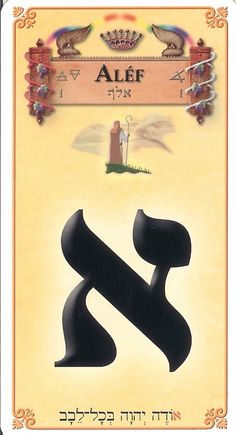The secret meaning of the Adam and Eve story. That’s what Rabbi David Wolpe, the second teacher of this year’s virtual Tikkun Leil Shavuot, revealed to us.
My translation (he spoke in English) and extension of Rabbi Wolpe’s teaching:
Adam and Eve didn’t need to be told not to eat from the Tree of Life. Until they ate the “forbidden fruit” of the Tree of Knowledge of Good and Evil, they didn’t know. Didn’t know what? That they were mortal. Lacking that knowledge, what need would they have had for a shot at immortality, that is, a taste of the Tree of Life? They ate knowledge, they saw that they were naked, they felt shame, they covered themselves, and they hit the road—were banished from Gan Eden.
What happened next? They reached for immortality: they created life—a being who would outlive them. But they weren’t ignorant. They knew that their offspring, too, would die and that their desire for immortality would not be satisfied.
“We’ve got to get back to the garden,” sang Joni Mitchell. I was there: Woodstock. Three days of peace, love, and music. Three days of vandalism, bad trips, and, after most of the Adams and Eves had gone, a vast, muddy field of trash.
God knows we want it: life eternal, Eden. But God won’t let us go back. A flaming sword guards the garden’s gate.
But maybe this punishment is not only a punishment. Maybe it’s also a gift: God gave us mortality, without which we wouldn’t be human.
Thus, here we are. Here, in this world, the only world we have. It’s broken. We broke it. We work to repair it. It’s our home, our only home. Yet, somehow, we also feel far from home. So we long to get back to where we—all of us—once belonged.
*
“No translation can fully render the melodies of the Psalms. There is in them as if a natural undulation of the phrase, marked, however, also by some profound necessity. The verse is free but exact—an ideal of poetry.” Poet, writer, translator Anna Kamieńska (1920 – 1986) learned Hebrew so she could read the Bible in its original language.
But what if the psalms were originally written (sung) in another language, and Hebrew was the language into which they were first translated, the version that has come down to us in the language that we call the “original language”?
*
Tikkun Leil Shavuot.
Jews stay up all night studying Torah, rabbinic literature, Zohar, and, now, a range of other related texts on the first night of Shavuot. Shavuot celebrates the revelation of Torah at Sinai, an ongoing revelation that, according to rabbinic tradition, continues to this very moment. Why all night? According to a midrash based on Isaiah 50:2—“Why did I come when no one was there? I called, and there was no answer”—, the Israelites slept so deeply the night before Torah was revealed that they had to be awakened for the big event with thunder and lightning. To make up for that, one explanation goes, the all-night study session, Tikkun Leil Shavuot, was created.
*
“For fish death takes the shape of the beautiful white gull with widespread wings whose flight we trace with rapture.”
Thunder and lightning? Not exactly. But this passage from Kamieńska’s “In That Great River: A Notebook,” translated by Clare Cavanagh and published in Poetry, June 2010, woke me up when I first stumbled across it.
What a revelation! Who is this writer? Does she also write poems? Where can I find more of her work? I didn’t have time that afternoon to read “In That Great River” in its entirety, but I said I’d get back to her. Then I got busy, and I forgot.
*
Is time the necessary condition for returning to the source of revelation? Spare time: time when one is not occupied with other responsibilities, interests, needs? Sacred time: time that in its very nature is set apart, designated periods when we might make contact with or receive contact from the divine?
*
What was revealed at Sinai? Some say the entire Torah. Some say the Ten Commandments. Some say the first word of the first commandment, Anokhi, I am. Some say only the first letter of the first word of the first commandment, which is the first letter of the Hebrew alphabet, a silent letter: aleph. Everything else in Torah? A translation of silence.
*
“All day I’ve been searching in myself for the silence that begins the dialogue with God.” Cavanagh’s translation.
*
If the revelation at Sinai was silence, then Torah is the beginning of the dialogue with God, our response to God. We begin by reflecting back to God what we heard God say to us.
*
Is it just a coincidence that just now, during stay home, stay safe, I’ve found my way back to Kamieńska—finally finishing, ten years later, “The Great River: A Notebook,” then moving on to her poems? Did the pandemic lead me here? Did God?
“I sought a dead man and found God.” Cavanagh’s translation.
I don’t know Polish. Thank God, thank God, for Cavanagh and for Astonishments: Selected Poems of Anna Kamieńska, edited and translated by Grażyna Drabik’s and David Curzon.
*
Kamieńska’s husband, Jan Śpiewak, died when she was 47. Cancer.
George Floyd was 46 when he was killed on May 25 by police officer Derek Chauvin. On the front page of the New York Times, May 24: the names of 1,000 of the nearly, on that day, 100,000 Americans who had died of COVID 19.
*
The Empty Places
Let us hurry to love people, Jan Twardowski
I didn’t manage to love anyone even though I hurried so much It was as if I had to love only empty places the dangling sleeves without the embrace the beret abandoned by the head the armchair that also should get up and leave the room the books no longer touched the comb with a silver hair left in it the cots babies outgrew the drawers full of unnecessary things the pipe with a chewed mouthpiece the shoes molded to the shape of a foot that departed barefooted the phone-receiver where voices grew hush I hurried so much to love and naturally I didn’t manage
That’s Kamieńska, Drabik’s and Curzon’s translation.
*
I know this poem exists in the original Polish. All I have access to is this translation into English. This translated poem: it’s like a “comb with a silver hair left in it,” like “the shoes molded to the shape of a foot/that departed barefooted.”
I’ll never have the original. That living being, that life.
*
“I like Simone Weil’s idea that writing is actually the translation of a text we already carry within us. That notion makes a heavy task lighter.” Cavanagh’s translation.
According to a midrash, a fetus knows the entire Torah while in its mother’s womb. At the moment of its birth, as soon as the baby comes into the light, an angel strikes it on the mouth—the source of the philtrum, that little hollow above the upper lip and right under the nose—and the baby forgets the whole Torah. But is Torah still somehow carried within? Can we ever get back to the original, what we knew whole, before we were born? Do we spend our entire lifetime translating it, as it were, in writing and deed?
*
Erev Shavuot (the first night of Shavuot): May 28. I’m there. Even now, on June 8, morning. Preparing to receive Torah. Receiving Torah. I’m there. I’m with Rabbi Wolpe. I’m with Adam and Eve. I’m mortal. Mortality: the original language.
Richard Chess directed the Center for Jewish Studies at UNC Asheville for 30 years. He also led UNC Asheville’s contemplative inquiry initiative for ten years. He’s published four books of poetry, the most recent of which is Love Nailed to the Doorpost. He’s on the eve of retirement. He’s a lead organizer of the upcoming Faith in Arts Institute: An Exploration of the Intersections of Faith, Spirit, and Art. You can find out more about and register for the institute here. You can find him at www.richardchess.com





